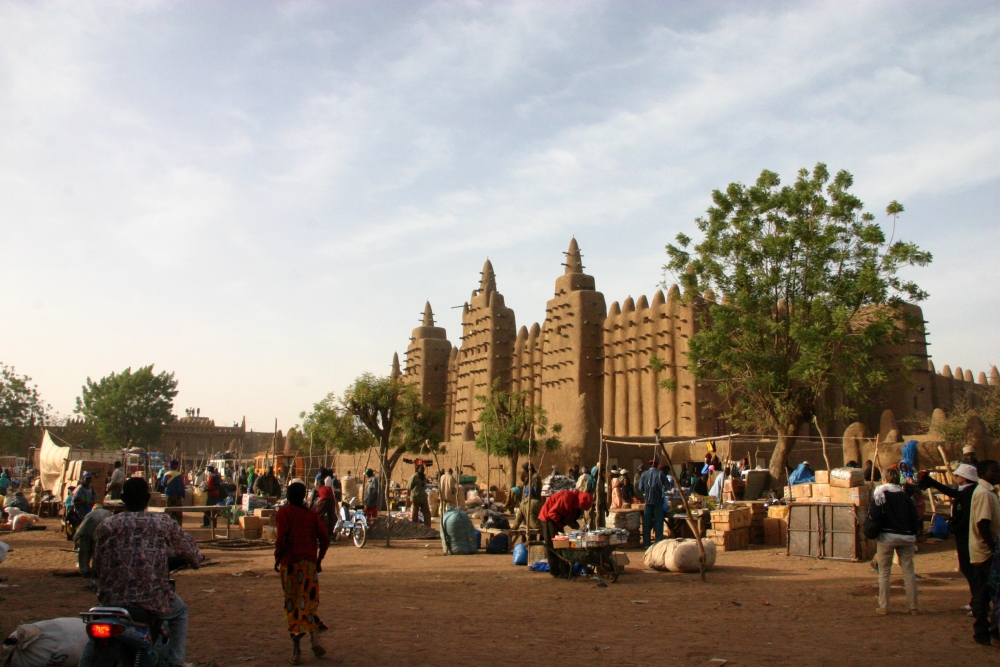Elections in Mali elevate the kidnap threat to foreign nationals

By Georgina Turner
On 29 July Malians went to the polls to cast their vote in the country’s presidential election. The vote took place amidst a turbulent period of ethnic violence and an increasing jihadist threat. In high risk countries election periods are often accompanied by heightened insecurity and escalating violence. In Mali’s case, post-election instability is highly likely to elevate the threat of kidnap to foreign nationals. Since the beginning of Mali’s civil conflict in 2012, power and authority sources across Mali have been fragmented across the country, enabling groups that conduct kidnappings to operate freely. The security environment leading up to the 29 July election has created suitable conditions for such groups to flourish.
Electoral insecurity
The electoral period in Mali has caused disruptions across the country, as rival political groups have vied for power and influence among their local communities. One of the key outcomes of the instability has been the worsening conditions that create and sustain support for Mali’s Islamist groups, which conduct kidnappings often targeting foreigners. Electoral preparations have stoked frequent eruptions of ethnic violence – according to the UN almost 300 people were killed in 2018 by intercommunal violence – and tensions were sustained right up until the day before the election (on 28 July at least 17 Fulani civilians were killed by Dogon hunters in central Mali). This violence has enabled Islamist groups such as the Islamic State in the Greater Sahara (ISGS) and Jama'at Nasr al-Islam wal Muslimin (JNIM) (al-Qaeda’s branch in Mali) to garner support by presenting themselves as an alternative form of governance that can protect communities from violence.
The growing strength of Islamic groups
The increasing strength of groups such as ISGS and, in particular, JNIM has been evidenced by a number of recent attacks on key military targets. JNIM claimed responsibility for the detonation of three suicide vehicle-borne improvised explosive devices (VBIED) at Timbuktu airport on 14 April 2018, which killed one UN peacekeeper and injured at least 17 UN peacekeepers and French soldiers. Similarly, JNIM claimed responsibility for a suicide bombing at the G5 Sahel headquarters in Sevare on 29 June, and on 24 July Ambodedjo Airport in Mopti was targeted by shelling. Although no group claimed responsibility for the 24 July attack, Islamist militants are presumed to be responsible. In an indication of its growing strength, the JNIM is not only increasing the frequency of its attacks but is also developing more sophisticated weaponry, such as VBIEDs, and demonstrating an ability to recruit fighters and amass resources across large swathes of Mali. Islamist groups in the wider region have long been known for employing kidnapping for ransom in order to finance their growing operations.
A history of kidnap
Islamist groups have been the main perpetrator of kidnapping in Mali in recent years. In November 2011 three foreign tourists – a Dutch, a Swedish and a South African national – were kidnapped by AQIM in Timbuktu and held until their release in April 2015, June 2017 and August 2017 respectively. While the Dutch national was rescued during a military operation by French Special Forces, it is unconfirmed whether a ransom was paid for the latter victims’ release. More recently, in June 2018 JNIM released a proof-of-life video of Colombian nun Gloria Cecilia Narvaez and French aid worker Sophie Petronin who were kidnapped in 2016 in Gao and 2017 near the border with Burkina Faso respectively. Islamist militant groups are known to specifically target foreign nationals and demand excessive ransoms as a method for raising resources to fund their operations. As they gather support in Mali’s post-electoral confusion, it is likely that ISIG and JNIM will sustain and even increase their kidnap activities to fund their expansion within Mali and the region.
Insecurity set to prevail
There is little evidence to suggest that Mali’s security environment will improve enough in the coming weeks and months to allow authorities to limit Islamist groups’ activities. In addition to ethnic violence, terrorism and the central government’s failure to gain a monopoly on power, in June 2018 a UN report found levels of food insecurity and malnutrition to be “markedly high” across the Sahel. This will only exacerbate intercommunal tensions and allow disparate groups to peddle influence through the control of scarce resources. Foreign nationals continue to be attractive targets for Islamist groups seeking to fund their expansion across Malian territory and should therefore ensure that a comprehensive travel security plan is in place for the duration of their visit.
Related Security News Alerts:
Mali: Military convoy ambushed in Segou region July 31
Mali: Presidential elections on July 29
Sahel region: Increased terrorist threat against Westerners
Mali: JNIM releases hostage video June 13
Mali: Explosive devices found in Bamako
Mali: State of emergency extended for one year
Read more: Mali Country Report
Crisis24 is a customizable information portal that features vetted news alerts about security threats and vulnerabilities from around the world. Exclusive content provided by IHS Markit supplements our Country Reports with valuable risk analyses.
About GardaWorld and NYA
GardaWorld recently acquired NYA, a global risk and crisis management consultancy. NYA’s Crisis Response team has helped numerous clients contend with crisis incidents, including kidnap for ransom in the Sahel. GardaWorld’s unique physical security infrastructure spanning the world’s emerging markets coupled with NYA’s industry-leading reputation and operational response capability provide our customers provide you a robust security services offering to better meet our clients’ unique needs. This strategic partnership brings added value to GardaWorld’s global Travel Security offering and strengthens its position as a major player in the global crisis management market.










